
Editor in Chief:
Creative Director:
Editorial Secretary:

Layout: (OVISION)
Sydney:
Adelaide:
1888 students honoured at the 39th Annual Quran Competition in Tripoli, Lebanon



Editor in Chief:
Creative Director:
Editorial Secretary:

Layout: (OVISION)
Sydney:
Adelaide:
1888 students honoured at the 39th Annual Quran Competition in Tripoli, Lebanon

ICOM’s Annual Quran Competition is underway, with the final rounds of the competition in all categories taking place this week.

Both Primary and Secondary school students competing have truly been astonishing in all rounds of Recitation, Memorisation, Azan and Short Speech categories.
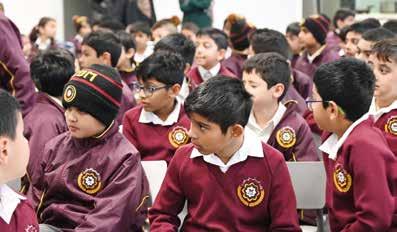
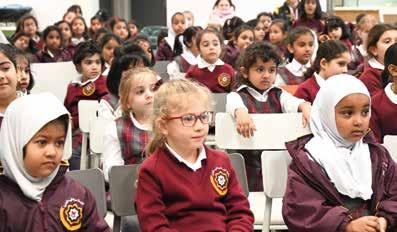
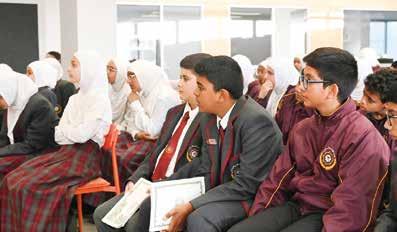
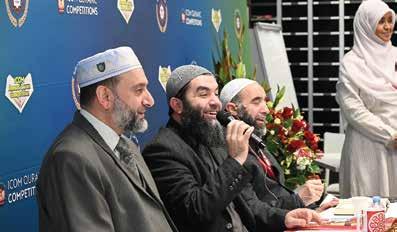
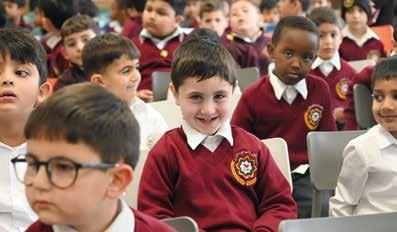
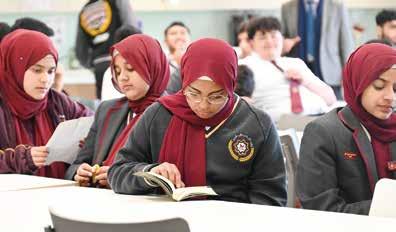
Students of the book of Allah SWT are all winners, regardless of how they perform in the Competition.
We would like to take this opportunity to thank our dear parents for their support and our dear Quran teachers for their hard work and dedication.
From the 24th of April to the 8th of May 2023, Aspire Leadership Network provided leadership training seminars to women leaders in Sydney.
The Women’s Leadership Development program comprises ten hour-leadership training. This program was presented by Dr. Rawaa El Ayoubi and organised by Western Sydney MRC and funded by Multicultural NSW to empower Australian women leaders and to give them a launchpad to success.
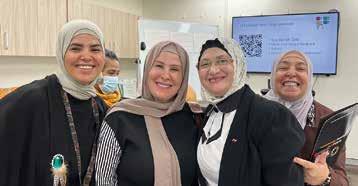
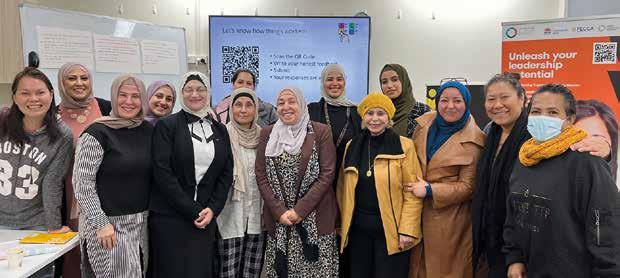
This program was designed for emerging women leaders and women leaders who are seeking clarity in their direction and purpose in their life and career.
• It is about creating their selfawareness and their strategic development plan that will motivate them to achieve their goals and help them be self-
aware leaders and consistent in their actions so they can decide where to put their energy, how to balance the different aspects of their life, and when to take corrective steps and be resilient if something is going out the balance.
• Moreover, it is about empowering women to bring out the leader in them. And this can be done only if women are educated and trained well on how to take corrective actions and can make decisions.
• This development plan helps them make decisions in their life and career and thus, maintain balance in each aspect of their life, so they are more effective as leaders, parents, friends, colleagues, and community members.
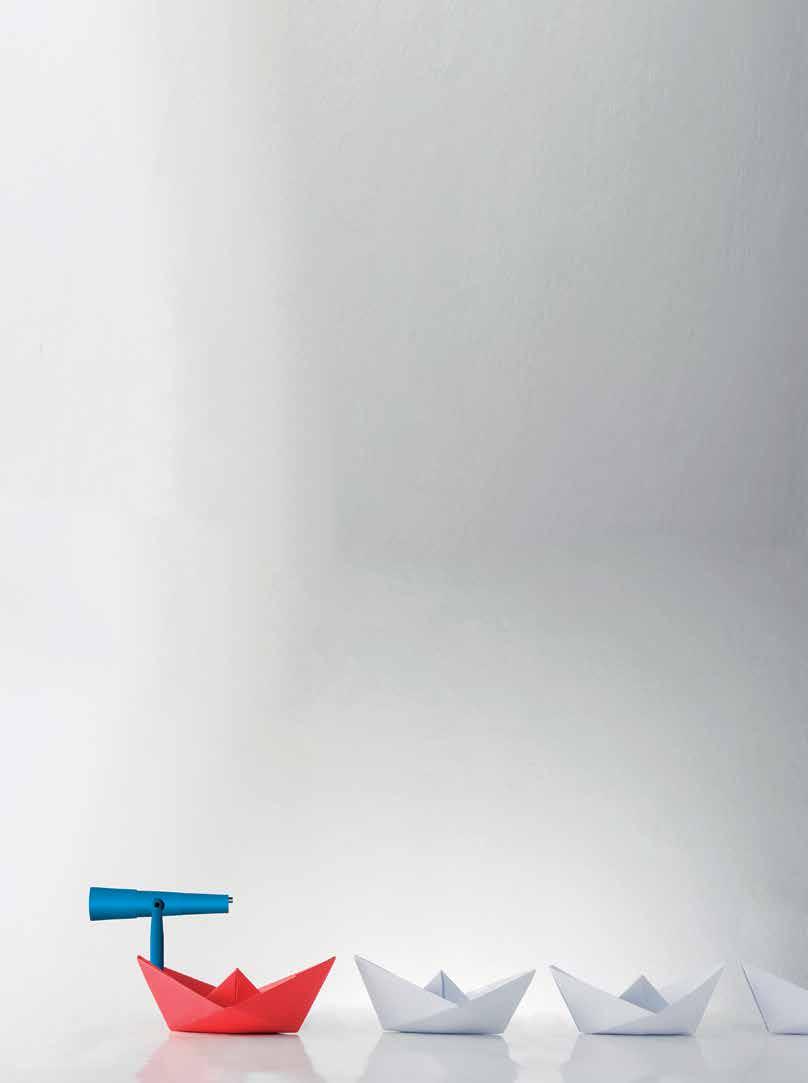
• It will also help them design and build their strategy that serves as a compass to fulfill their potential.
Women leaders need to understand what they are aiming for, but more effectively they need to be equipped with the right skills and tools to achieve their purposes. Furthermore, the training is also committed to ensuring that participants leave the program not only with a better understanding of how to bring out the leader in them and lead people but with the practical skills required to make it happen.
Aspire Leadership Network is grateful to Western Sydney MRC who organised the program and to Multicultural NSW who funded this amazing project to empower and support Australian women. Also, we take this opportunity to appreciate all women leaders who attended and participated in this amazing program. We hope that this training program will continue to inspire them from time to time.
Assalamu Alaikum, Warahmatullahi Wabarakatuh
I hope this letter finds you in the best of health and spirits. As we are approaching the holy month of Dhul Hijjah and the best ten days of the year, I wanted to take a moment to extend my warmest congratulations to you and your loved ones. These are truly blessed days in the Islamic calendar, filled with opportunities for reflection, prayer, and acts of kindness and charity. It is a time when Muslims from around the world come together to perform the Hajj pilgrimage, and for those who are not able to make the journey, we can still participate in the happy occasion by providing our Qurban, increasing our good deeds and striving to be better versions of ourselves.
Qurban is performed as a way to demonstrate obedience to Allah. Every year around the same time of the lunar year, Human Appeal Australia runs its Qurban campaign to serve the Muslim community in performing their Qurban duty and consequently to provide food to the poor and needy.
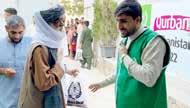
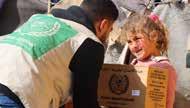
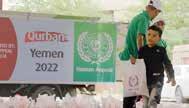


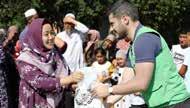

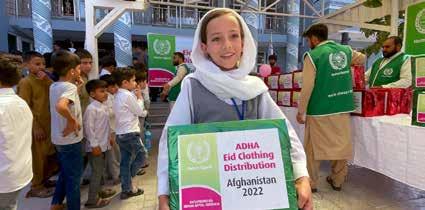
As we celebrate the season, we are reminded of the story of Prophet Ibrahim (peace be upon him) and his willingness to sacrifice his son in obedience to Allah’s command. It is a time to reflect on the importance of submission to God’s will and the rewards that come with it. May these ten days of Dhul Hijjah and coming Eid Al-Adha bring you and your loved ones peace, joy, and prosperity. May Allah accept our prayers, fasting, and good deeds, and grant all the strength and guidance to continue with us on the road to goodness.
Yours sincerely,

Once again, congratulations and Eid Mubarak!.
Bashar Al Jamal Director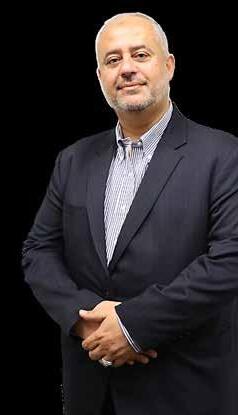
Witness
Our beloved Prophet (pbuh) said:
‘Whoever helps a brother in his time of need, Allah (swt) will help him in this life & the next”. [Muslim]
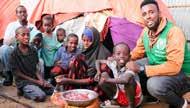
Councillor Bilal El-Hayek is the new Mayor of Canterbury-Bankstown following an extraordinary Council meeting.
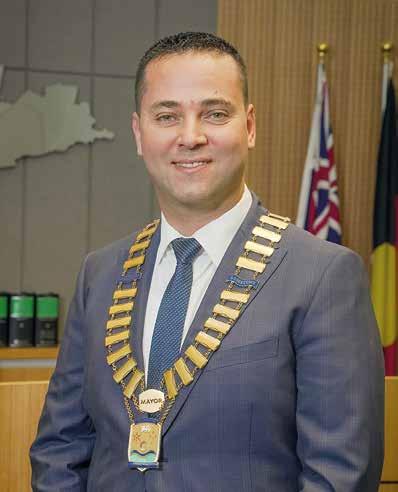
Mayor El-Hayek, 36, was elected unopposed by his fellow Councillors after the former Mayor Khal Asfour stepped down from the City’s top job.
Family, friends and supporters packed Council chambers during a historic night, which saw the first Muslim take on the role as Mayor of Canterbury-Bankstown.
In a heartfelt speech, Mayor ElHayek thanked his wife, Maysa, and his four children and the community for their unequivocal support.
“This is a dream come true ¬¬¬–being elected as a leader of one of the State’s biggest Councils,” Mayor El-Hayek said.
“This is a realisation that no matter who you are, or whatever background you come from ¬¬¬– it is possible to achieve and reach your goals in life.”
Mayor El-Hayek arrived in Australia in 1999, at the age of twelve. Not
speaking a word of English, he temporarily resided in Lakemba before eventually settling into his family home at Greenacre, which he still shares with his mother, Sana.
“My interest in politics, and the Labor Party, was borne out of a desire to help those who have no voice, those struggling to make ends meet and to tackle social injustices and prejudices.”
He was elected to the newly merged Canterbury-Bankstown Council in September 2017 and has since served twice as Deputy Mayor.
He has also served as a youth coordinator at Bankstown Police Citizens and Youth Club and is an active member on the Ramadan, Diversity and Inclusivity and Audit and Risk committees.
As the Mayor of CanterburyBankstown, Councillor El-Hayek is committed to keeping up his active presence in the community.
“It is my intention to get out and about and chat with as many people as possible, from town centres to local neighbourhoods and suburban streets.”
“We have without doubt one of the largest multicultural and diverse Cities in the country and I will strive to work closely with religious and cultural organisations and do what I can to promote harmony and inclusivity.”
He added he will continue to support charitable organisations and will do his fair share of volunteering and packing food hampers.
But his strongest message was directed at young people who have aspirations of becoming leaders.
“I hope my story of the kid who migrated here and couldn’t speak a word of English, to become Mayor, will inspire you all to achieve your goals.”
The Andrews Labor Government is investing in more community building projects across Melbourne, helping local councils and community groups strengthen local culture and wellbeing.
Minister for Suburban Development Ros Spence today announced more than $1.6 million for 11 new projects, made possible by the Labor Government Our Suburbs: Living Local Fund.
Successful grants include a refurbished community hall for the Tamil Educational Cultural &
Charitable Association in Deanside, a cool room for the Muslim Women’s Council community kitchen in Brunswick, and the creation of a migration trail to celebrate Victoria’s multi-cultural history in Port Melbourne.
Other projects funded encourage connection, inclusion and wellbeing including First Nations street art in Oakleigh, a children’s playground at Upwey Belgrave RSL, and a new hub and garden at the Elizabeth Morgan House Aboriginal Women’s Service in Northcote, Victoria’s first refuge for Aboriginal women and children.
To date, more than 320 community building projects have shared in the $15 million Our Suburbs: Living Local Fund investment to promote social connection, liveability, and enhance local shopping strips and activity centres across Melbourne.
Under the fund, local councils and community organisations receive grants of up to $200,000 for infrastructure projects, while smaller grants of up to $20,000 support the purchase of equipment, minor upgrades, and maintenance to facilities to continue to service their local communities well into the
future.
For more information on the Living Local Fund, visit suburbandevelopment.vic.gov.au/ living-local.
“We are creating more enjoyable and connected suburbs across Melbourne by investing in local projects that help communities thrive.”
“More than ever, being part of an inclusive and supported community is something all Victorians deserve.” Minister for Suburban Development Ros Spence said.
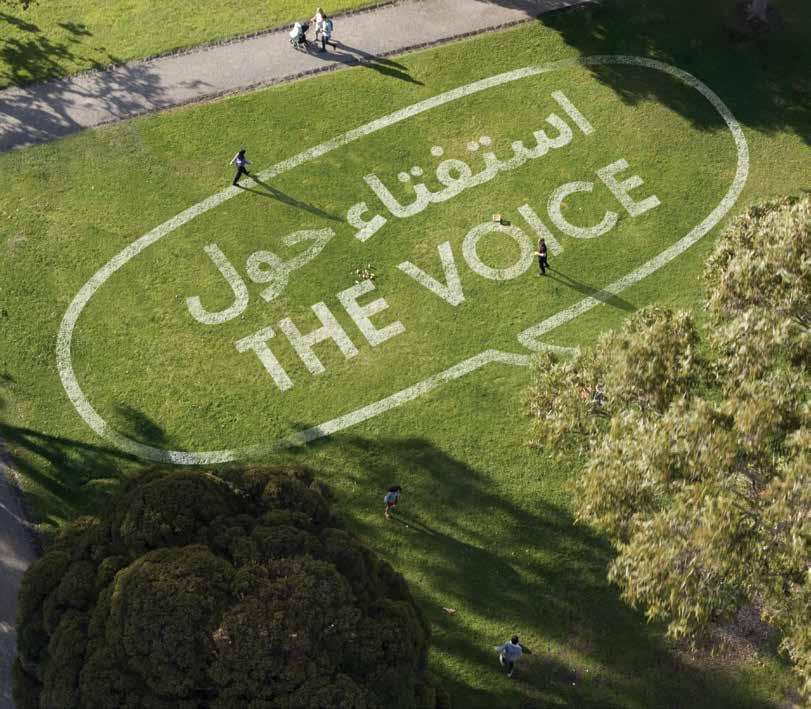
The Andrews Labor Government have pledged around $120 million funding for multicultural communities through the Victorian Budget 2023/2024. This funding will cover festivals, infrastructure, education, and support programs to combat racism in Victoria.
Approximately $50 million will be allocated over a four-year period to the Multicultural Community Infrastructure Fund, including funding for Indian and Chinese community centres in Melbourne suburbs. Of this, $10 million will be invested to upgrade and revitalise business and cultural hubs in some of Victoria’s largest and most important multicultural precincts, namely Box Hill, Chinatown, Dandenong, Oakleigh, Elsternwick, Footscray, Richmond and more.
In support of education within the multicultural communities, the Andrews Government have assigned $30 million to build and upgrade Islamic schools in Victoria.
“This Budget is not just about supporting multicultural Victorians themselves, but about supporting multicultural schools, kinders, community centres, places of worship and the infrastructure that keeps our communities connected,” says Assistant Treasurer Danny Pearson.
They also plan to open 10 new bilingual kinders across the state and a further $6.2 million will be allocated for multicultural story times aiming to strengthen ties of culture and heritage, as well as initiating reading sessions at up to 60 locations in local libraries and community centres.
The Budget will invest $2 million to support 10 peak multicultural traders’ associations including the Australian Lebanese Chamber of Commerce & Industry, Asian Business Association of Whitehorse, Melbourne Chinatown Association, Oakleigh Village Traders Association, Victoria Street Business Association, Springvale Asian Business Association and St Albans Business Group. A further $5 million will deliver $10,000 scholarships to 500 multicultural Victorians and $1.5 million worth of grants to multicultural media outlets. They also plan to increase advertising in culturally and linguistically diverse (CALD) communities to 15 per cent of total advertising spend.
The Andrews Labor Government plan to spend $6 million in antivilification campaigns ensuring Victorians can freely practice their faith and embrace their culture free from racism and hatred of a minority. This comes as a result of their promise to strengthen the Racial and Religious Tolerance Act
2001 to make it easier to prosecute any individual who incites hatred or bigotry based on someone’s faith or race. As a result, they have established a new Multicultural and Multifaith Law Reform Consultative Committee to ensure voices of diverse communities are heard and considered in the development of Victorian laws.
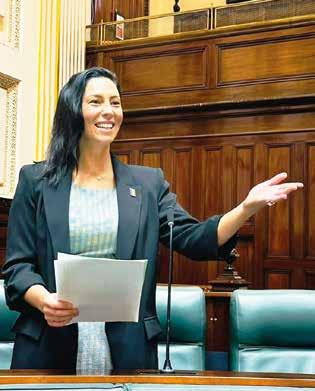
The Budget will also invest $3.5 million to the Ethnic Communities’ Council of Victoria (ECCV), Victoria’s peak body for migrant and refugee communities. Close to $6 million will be allotted to continue programs supporting refugees and asylum seekers by delivery of culturally appropriate health care and education for newly arrived and at-risk refugees as well as continue supporting asylum seekers who are ineligible for basic safety-net supports.
“Victoria is already Australia’s multicultural capital, and this Budget makes sure our multicultural communities can celebrate their cultures and traditions with equal rights, protections and opportunities,” says Minister for Multicultural Affairs Colin Brooks.
The Andrews Labor Government is delivering on its election promise by re-establishing the State Electricity Commission and investing in renewables to help drive down power bills.
The plan is to initially invest $1 billion to the SEC which is meant to deliver 4.5 gigawatts of power – the equivalent replacement capacity of Loy Yang A –through renewable energy projects. In addition to reducing Victoria’s carbon footprint, it is estimated to create close to 60,000 jobs.
The Andrews Government will also offer free kinder for three and four-year-olds as well as upgrade and provide new equipment to kinders across the state.
They will also be investing $650 million to upgrade the Melton line – delivering bigger and better nine-car VLocity trains and extending station platforms including
at Ardeer station – increasing capacity on the line by 50 per cent.
“The Andrews Labor Government is delivering on every election commitment we made to the people of Kororoit – and we’re doing what matters in the west,” says Luba Grigorovitch, Member for Koroit.
The Andrews Government will also build a new comprehensive women’s health clinic at Footscray Hospital which will change the way women’s health issues are treated providing care and support for conditions like endometriosis, pelvic pain, polycystic ovary syndrome (PCOS), perimenopause and menopause.
Making studying nursing free by way of enshrining nurse-to-patient ratios, they will invest over $154 million which will put more nursing staff in intensive care, high dependency and coronary care units, and more nurses
and midwives in maternity services. Bonuses will be offered to graduate nurses and midwives, funding to attract more international healthcare workers, and scholarships for nurses to upskill as well as the recruitment of an additional 450 nurses.
Koroit’s Western Emergency Relief Network will receive a $200,000 grant for their contribution to their locality.
The Australian Bosnian Islamic Centre in Deer Park will receive a $50,000 grant to upgrade their facilities and the Debre Genet Saint Michael Ethiopian Orthodox Church will receive $20,000 for their Meskel Celebration.
“From better healthcare for women to a major upgrade to the Melton Line, we’re making sure the people of Kororoit have the services they need now and into the future,” Luba Grigorovitch commented.

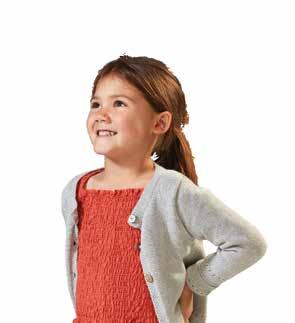


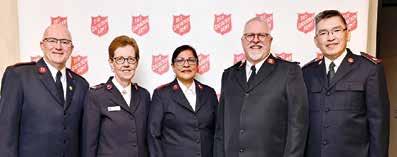
For the last 32 years, Human Appeal Australia has been working tirelessly to serve community and to provide relief to those in need around the world. However, the recent surge in conflicts and natural disasters has brought about an unprecedented increase in the number of individuals and families struggling with food insecurity. The need for access to healthy and nutritious meals has never been greater, and we are committed to doing everything in our power to help.
We are launching our Qurban Campaign 2023 for our community to fulfil their Qurban duty and consequently to provide nutritious food to disadvantaged communities in 33 locations globally. Below are some frequently asked questions that will benefit you performing your Qurban duty in the best manner.
Muslims sacrifice a Qurban (Udhiyah); which can be a goat, sheep, cow or camel – to reflect the submission of Prophet Ibrahim (Peace be upon Him) who was commanded by Allah to sacrifice his beloved son Ismail.
Allah (SWT) rewarded Prophet Ibrahim for his obedience by saving Ismail and a ram was sacrificed instead.
Qurban is sacrificed during the days of Eid Al-Adha as an act of worship, thereby intending to draw closer to Allah. Sacrificing Udhiyah is one of the great rituals of Islam prescribed in Quran and the Sunnah of His Messenger Muhammadق. Allah says: “Therefore turn in prayer to your Lord and sacrifice (to Him only).” [Al-Kawthar 108:2]
Human Appeal Australia has been providing the service of Qurban to the community for the last 31 years. Below are frequently asked questions we found beneficial for our community to know.
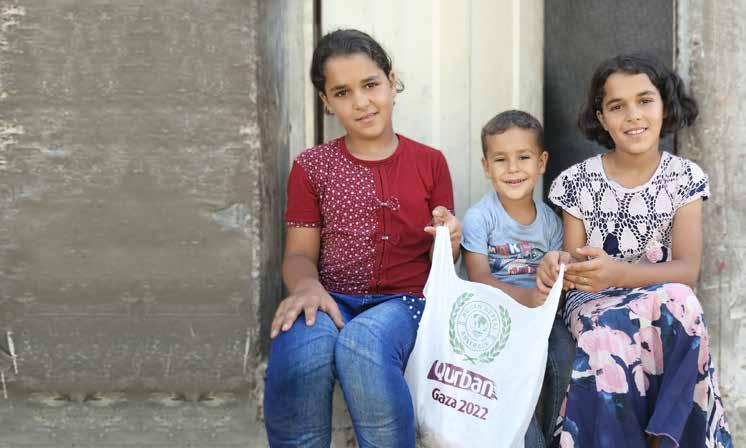
Do I have to do Qurban?
Yes. Qurban is considered an Obligatory Sunnah therefore it is an obligation for each household to provide at least one Qurban.
Do I have to sacrifice the Qurban myself?
No. You can delegate that to an individual or an organisation to sacrifice your Qurban on your behalf.
How many Qurban should I do?
Each household must do at least 1 Qurban. This is according to the hadith
of the Prophet ق, “O people, it is compulsory for every household to make a sacrifice yearly.” [Ahmed]
Can I do more than one Qurban?
Yes. You can do as much as you can or like. The Prophet (Peace be upon Him) would at times sacrifice more than one animal. It was narrated that once with his own hand ق had sacrificed 63 animals and asked Ali Bin Abi Taleb س to slaughter the rest.
When must I pay my Qurban?
Qurban must be paid by the sunset of the last day of Eid Ul-Adha.
Human Appeal Australia process’s Qurban for the entire 4 days of Eid, hence you can still pay during that time as well. Nevertheless, it is preferable to pay as soon as you can.
Which animals can be considered Qurban?
Sheep, goats, camels, buffalos and cattle (cows or bulls).
Can I send my Qurban to someone I know?
Yes. We provide this service in 2 countries:
Lebanon and Jordan. To do so contact the Human Appeal office to provide the beneficiary’s name, number, city & suburb they live in.
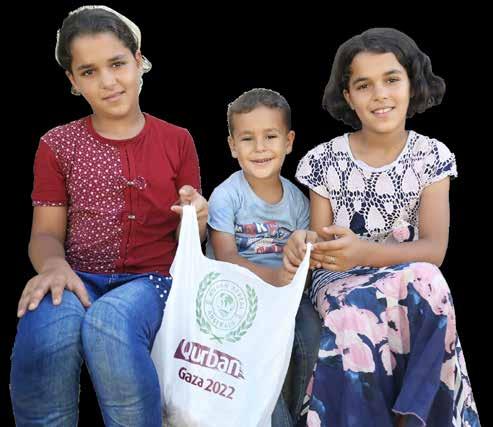
For other destinations the Qurban will be distributed to those in need.
Is the Qurban sacrificed fresh onsite or in a different country?
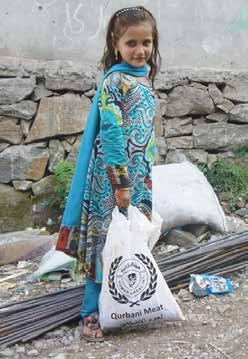
Where it is viable, livestock is purchased and sacrificed in the destination country. This allows the poor and needy to enjoy fresh, local meat on the days of Eid Al-Adha. Alternatively, livestock are sacrificed in Australia and other countries and then sent to the poor and needy, either canned or hard-frozen.
What is Canned Qurban?
Canned Qurban is pre-cooked and has a long shelf life. It is professionally and hygienically prepared and ready for immediate consumption. This is an effective way to distribute Qurbans in regions where there are no refrigeration facilities, such as refugee camps.
What is Hard Frozen Qurban?
Hard Frozen Qurbans are cut into 6 pieces and individually wrapped. Each Qurban is shipped in a separate carton to its intended via refrigerated containers.
Last year Human Appeal Australia distributed Qurban meat to over 1.2 million beneficiaries in 28 countries around the world.
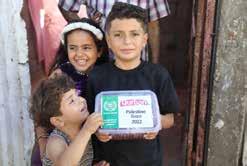
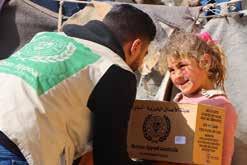
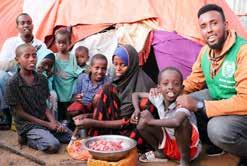
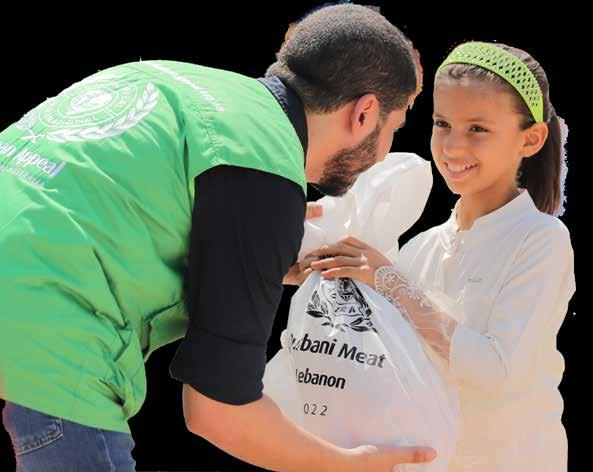
We invite you to increase your rewards during this blessed occasion by donating your Qurban to the poor and bring happiness into their lives. Your Qurban, their joy and happiness.
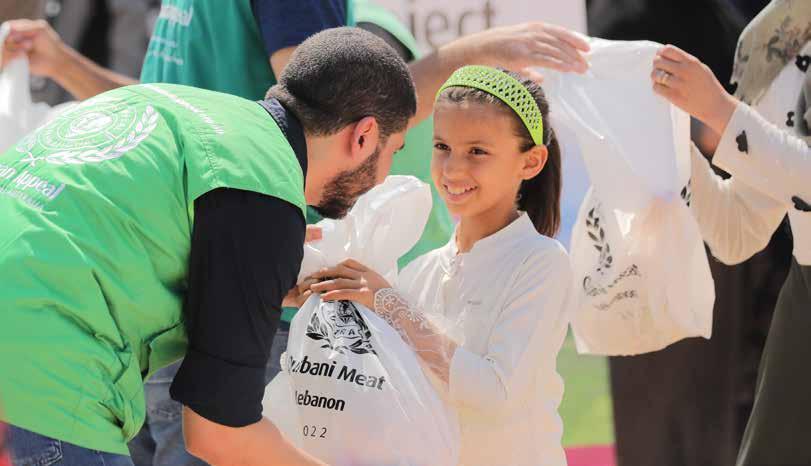
“O people, it is compulsory for every household to make a sacrifice yearly.”
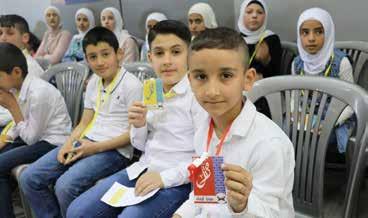
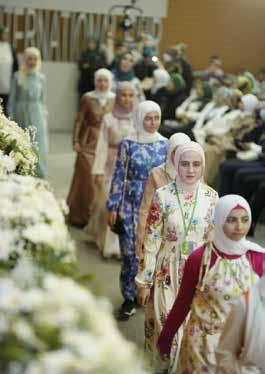
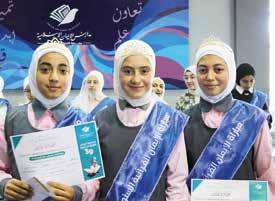
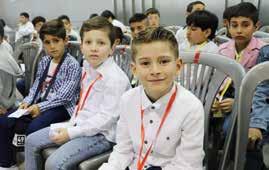
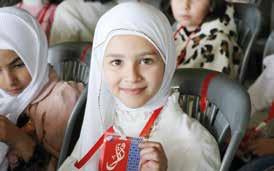
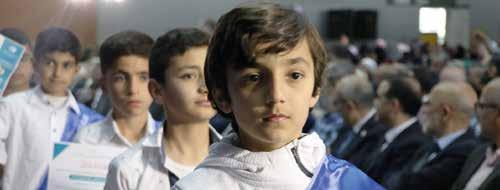
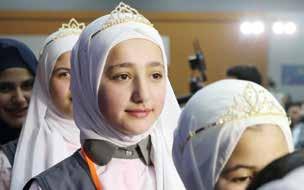
The Islamic Education Association hosted its annual Quran Competition on 16 April 2023 in Tripoli, Lebanon. In its 39th year running, more than 1888 students received awards and monetary prizes during the grand ceremony attended by religious, social, and political figures in addition to thousands of participant’s family members. The ceremony commenced with
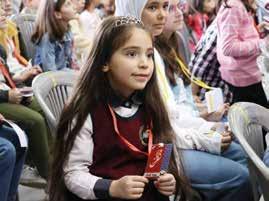
recitations from the Holy Quran followed by the Lebanese National Anthem and as well as the anthems of the participating schools.
Dr Ahmed Aloush, Chairman of the Cultural Committee, gave a speech expressing his strong support for the Association and encouragement of memorising the Holy Quran. His Eminence, the Mufti of Tripoli, Sheikh Muhammed Tariq emphasised the importance of learning,
memorising and implementing the Quranic values and highlighted the reward for the hafidh in the Hereafter.
Dr. Abdul Mohimen Kamareddine, who represented the family of the late Mustafa Kamareddine, praised the efforts of the organising committee for hosting such a valuable event in the interest of revering the tenets of the Holy Quran.
This year’s Quran competition was sponsored in its entirety by the family of Hajj Mustafa Kamareddine who was known to be an ardent advocate of Quran activities. We ask Allah (swt) to accept from all. Students of the Book of Allah (swt) are all winners regardless of how they perform in the competition.
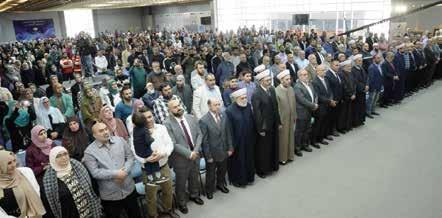

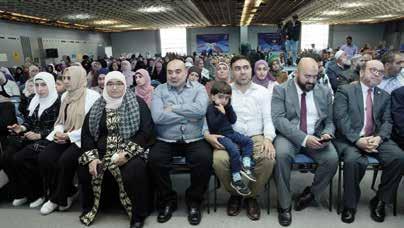
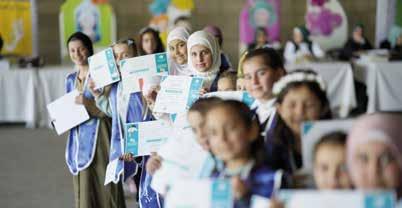
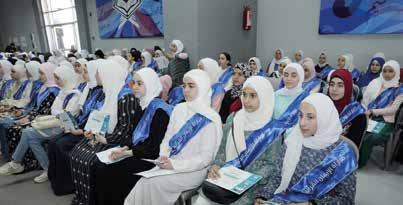
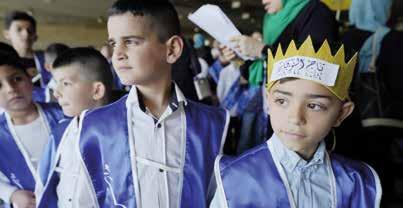
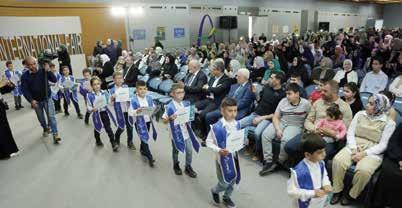
House Celebrated 25 Years of Higher Education Awards in the community.
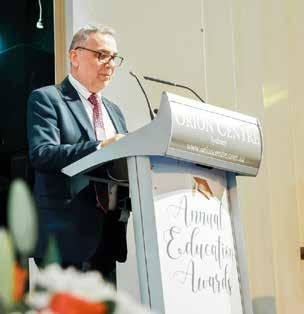
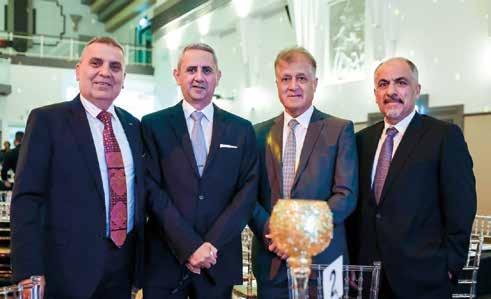
Muslim students have achieved amazing things year after year! At Zakat House, they are always excited to celebrate their accomplishments and
motivate the youth to reach higher heights. This year, they mark there 25th year of Higher Education Awards!
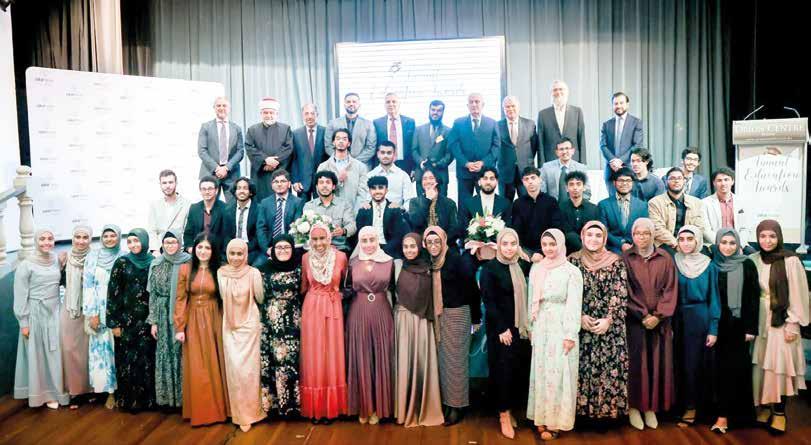
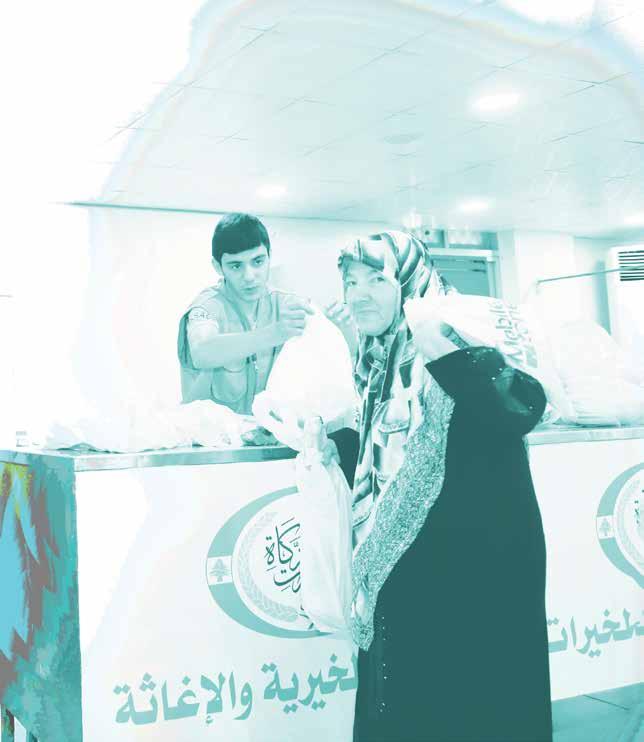
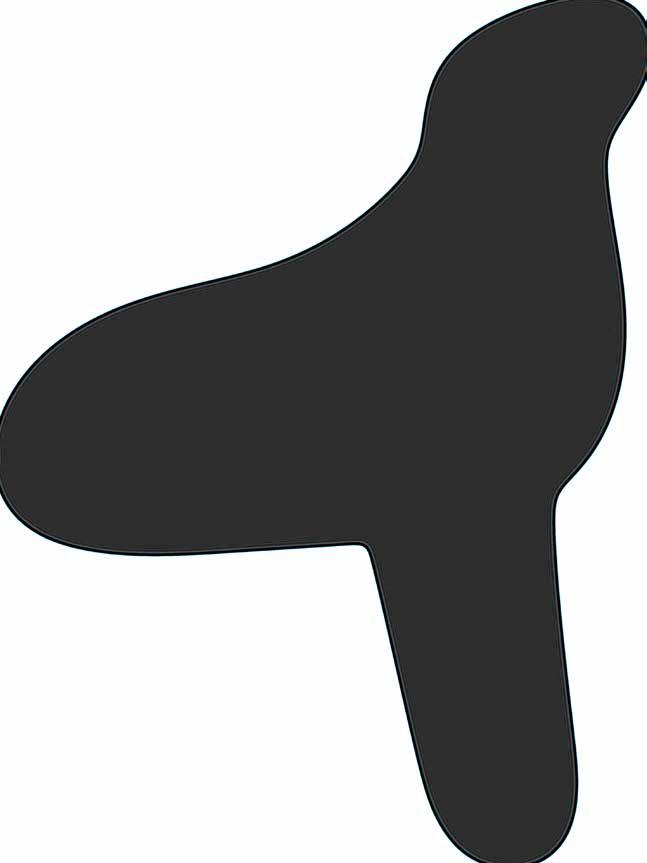
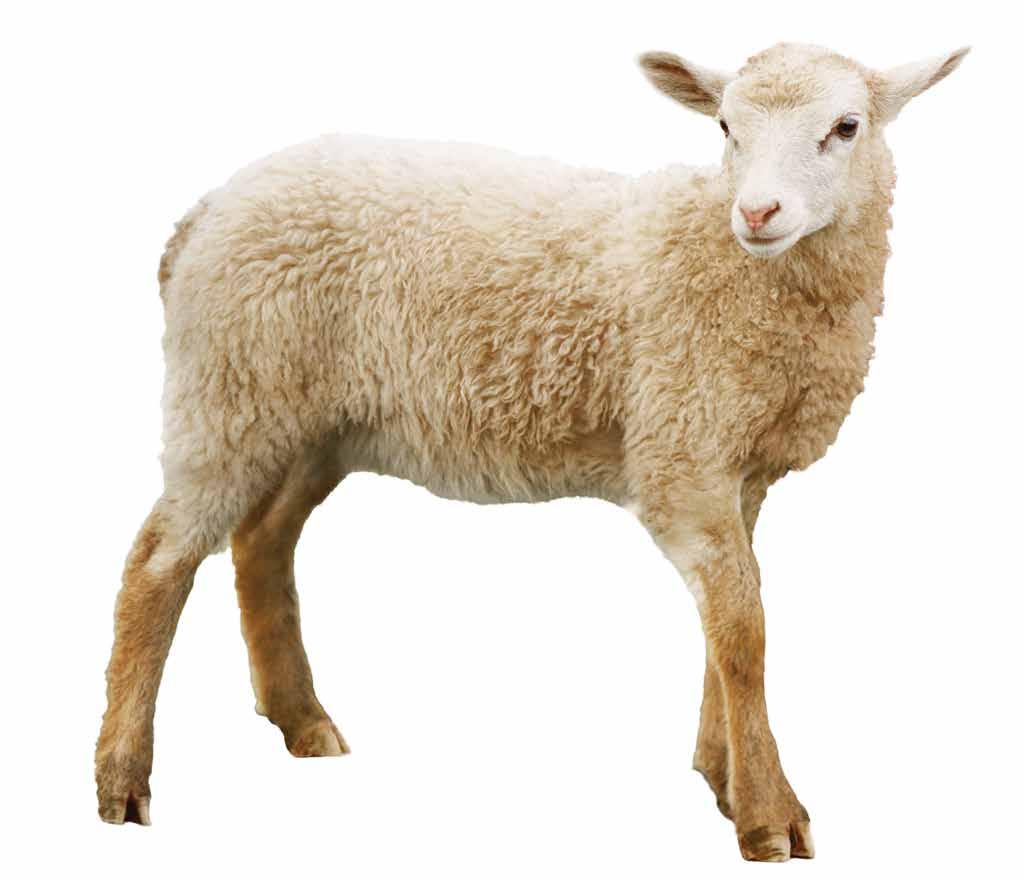
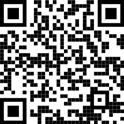
With ‘Welcome to the AMWU’ (‘Ahlan Wa Sahlan Fi AMWU’) and ‘tonight we are all Palestinians’ (‘Al yom, kolna Falasteniy’)
the Victorian Branch of the Australian Manufacturing Workers’ Union (AMWU) opened its commemoration of Nakba—the Palestinian experience of dispossession and loss of their homeland.
In collaboration with the Australia Palestine Advocacy Network (APAN) and attended by union members, parliamentarians, the local Palestinian and broader community, the AMWU held
a cultural and political event at its premises to mark the 75th anniversary of Nakba.
In his welcome the State Secretary of the AMWU Tony Mavromatis, referencing one of its great leaders, the legendary Frank Cherry, stated that the ‘AMWU always had a vision for workers beyond Australian shores’ and that the trade union movement has a long and proud history of international solidarity with liberation, anti-colonial, and anti-imperialist struggles.
In continuing this tradition, the AMWU has mounted a series of cultural-
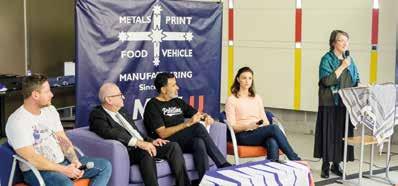
political activities that commemorate, educate, and acknowledge the sacrifices of international progressive movements around the world. Its objective is to Inspire— Educate—Connect. It seeks to educate about, and learn from, the struggles—past and ongoing—in various parts of the world, against the forces of reaction, suppression, exploitation, and capitalism, where unions and the working class have been the driving forces behind social mobilization and revolution.
The AMWU’s State Secretary Mavromatis was followed
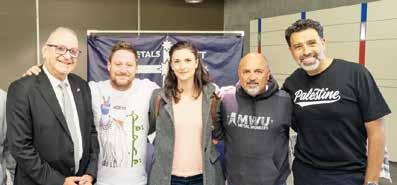
by a message from the President of APAN, Nasser Mashni, who explained why, and how, Australians should care about the Palestinian fight for justice and freedom.
The poems of two of Palestine’s, and the Arab world’s, most distinguished poets, Fadwa Tuqan, ‘Enough of Me’, and Mahmoud Darwish, ‘In Jerusalem’, were recited in both their original Arabic and English translation.
The poems were followed by a keynote speech on “The Nakba” by HE Dr Izzat Abdulhadi, Ambassador of
Ahead of Victoria’s snow season officially commencing next week, Victoria Police is urging those planning to hit the slopes to plan ahead after thousands of visitors had their trip disrupted last year due to inadequate planning.
After two COVID interrupted years, last year’s snow season resulted in a record number of visitors heading to Victorian snowfields, including Mt Buller, Mt Hotham, Falls Creek, Mt Baw Baw, Lake Mountain, and Mt Stirling.
While the overwhelming majority of visitors were well prepared for the conditions, around 5,700 vehicles were turned around by police and authorised officers at Mt Hotham alone for not carrying appropriate wheel chains to drive in the snow.
Victoria Police and authorised officers will again be conducting random vehicle checks, both at alpine resorts and the roads leading to resorts, this year to ensure wheel chain compliance.
Wheel chains are a crucial piece of equipment when driving in alpine conditions, preserving the stability and traction of the vehicle’s wheels on roads affected by snow or ice.
It is a legal requirement to carry suitable wheel chains at all times during the snow season and they must be fitted when directed to do so. Failing to carry wheel chains may result in a $370 fine, while failing to fit wheel chains when directed incurs a $970 fine.
Visitors are encouraged to visit the VicRoads and snow resort websites to learn more about snow chain
requirements.
In addition to a heavy police presence across key roads leading to resorts, local police will also maintain a seven-day-a-week presence at Mt Buller, Mt Hotham, and Falls Creek for the duration of the season.
These officers have undertaken specific training in alpine areas in the lead up to snow season, ensuring they are well placed to maintain public order on the slopes, respond to incidents, and conduct search and rescue missions.
Police conducted 19 search and rescue events during last year’s snow season, including twelve at Falls Creek, five at Mt Hotham and two at Mt Buller.
Other key safety tips for those
the State of Palestine to Australia.
Facilitated by Ms Maria Vamvakinou, federal member of Parliament and a friend of Palestine, with the participation of Dr Izzat Abdulhadi, Mr Nasser Mashni, Ms Noura Mansour, and the AMWU’s Assistant Secretary and Political Liaison Officer Tony Piccolo, the evening ended with an interactive panel discussion around: ‘Why should Australia care about Palestine?’ and ‘Besides messages of support, what can Australians do to help the Palestinian cause?’
heading to the snow include:
• Ensure your car’s radiator is filled with anti-freeze and if diesel use Alpine Mix,
• Drive cautiously with gradual pressure on the accelerator to avoid wheel spin,
• Brake gently and avoid unnecessary gear changes,
• Maintain a safe braking distance from vehicles in front, especially in poor visibility.
• Let someone know where you are going and how long you will be,
• Regularly check weather and snow conditions as conditions can change quickly,
• If lost – stop, seek shelter, call Triple Zero (000) and wait.
زكارملا تسيلو زكارملا وعناص
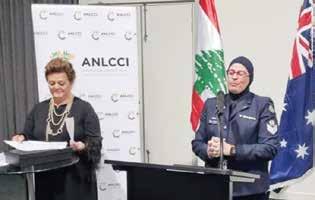
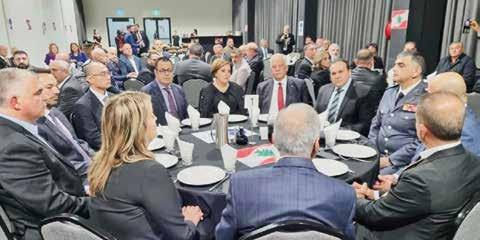
لجرو ،زكارملا عنصت نم يه
لمحت يف رمتسي نم وه ةلودلا
فورظ لظ يف تايلوؤسملا
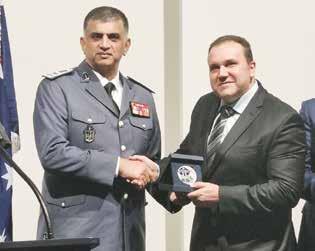
برهتي لاف نانبل اهب رمي ةبعص
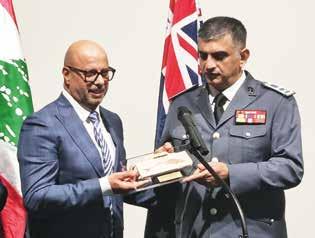
راتخا نم وه ،ةيلوؤسملا نم
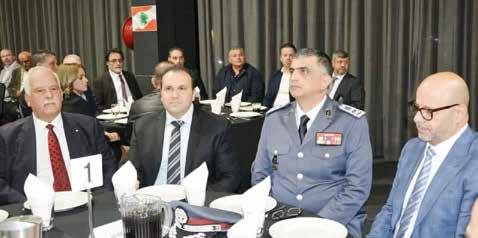
قوف ولعي ءيش لاو لاوأ نانبل
نطولل مدقي نم وه هتمدخ
ةلئاع و حور نم هدنع ام ىلغأ
اذه ةلودلا لجر وه اذه ،لامو .”نامثع دامع ءاوللا وه
ةراجتلا
to be paid by the innocent for the “national security” of some First World nations. [https://watson. brown.edu/costsofwar/papers/2023/ IndirectDeaths]
This statement was one of the conclusions contained in the Executive Summary of the 2023 Brown University report, “How Death Outlives War: The Reverberating Impact of the Post-9/11 Wars on Human Health.”
At the time the campaign was dressed up as a war of liberation from dictatorship, a war to bring about democracy. It wasn’t.
This Costs of War project, ongoing since 2011, is tracing the direct and indirect costs of the war waged since 9/11.
It has been awarded the 2022 US Peace Memorial Foundation Peace Prize, “For Crucial Research to Shed Light on The Human, Environmental, Economic, Social, and Political Costs of U.S. Wars.”
The 2023 Costs of War project report reviewed the latest research, establishing what led to the estimated 3.6-3.7 million indirect deaths in post9/11 war zones, including Afghanistan, Pakistan, Iraq, Syria, and Yemen.
When indirect deaths are added to combat related deaths the total cost of the War on Terror is estimated to be at least 4.5-4.6 million, “though the precise mortality figure remains unknown.”
The millions of indirect deaths are attributed to:
• Economic collapse, loss of livelihood, and food insecurity;
• Destruction of public services and health infrastructure;
• Environmental contamination; and
• Reverberating trauma and violence.
One of the horrific statistics is the 7.6 million children suffering malnutrition in the war zones. A dreadful cost
As the War on Terror was and is waged in mainly Muslim countries, Iraq, Syria, Afghanistan, Pakistan and Yemen, and as Brown University has concluded, it is and was waged by the very nations which are and were noted for their backgrounds of white supremacy and Islamophobia, it may be regarded as an anti-Muslim crusade.
Winston Churchill is supposed to have described deceptions in the war effort against Nazism as being a “Bodyguard of Lies.”
The War on Terror also appears to have been covered over by another sinister “Bodyguard of Lies.”
The long held Western prejudice against Islam very quickly came to the surface, with a myriad of stories about the bloodthirstiness of Muslims, and their desire to kill non-believers.
American evangelicals used the 2003 invasion of Iraq to provide Bibles to the Arabs, as though there were no Christians in the Middle East. Even their guns were blessed by the fanatics.
“Coded references to New Testament Bible passages about Jesus Christ are inscribed on high-powered rifle sights provided to the US military by a Michigan company, an ABC News investigation has found.
The sights are used by U.S. troops in Iraq and Afghanistan and in the training of Iraqi and Afghan soldiers. The maker of the sights, Trijicon, has a $660 million multi-year contract to provide up to 800,000 sights to the Marine Corps, and additional contracts to provide sights to the US Army.” [16 January 2010 ABC News (US)]
Much was also made of the “ancient hatreds” endemic throughout the Middle East, mainly arguing that Muslims naturally and historically hated and oppressed Christians and Jews, and how Sunni and Shia Muslims tore at each other’s throats.

In the midst of the intensifying vilification of Islam we were hit with the Regensburg lecture of Pope Benedict XVI containing a quote from Byzantine Emperor Manuel II Paliologos: “Show me just what Muhammad brought that was new and there you
will find things only evil and inhuman, such as his command to spread by the sword the faith he preached.”
Thus amidst the mounting campaign of vilification, the intolerance, violence and bloody-mindedness of Islam and the Muslims was proclaimed to the Christian world.
That Jews were saved from absorption into the Byzantine Empire, in accord with the policy of Heraclius by the arrival of Islam was mentioned by only one Jewish leader throughout the whole period of vilification.
That Christians enjoyed protected status with Jews as People of the Book was rarely mentioned, comparing favourably to how Christian Europe treated its Jewish and religiously dissident Christian groups. There were no fires of the Inquisition in Muslim lands.
That religious tolerance, which slowly spread in Europe, was based on the links between John Locke and the Unitarian ruler of Transylvania, who was under Ottoman protection, was mentioned by very few academics at the time. It did not suit the narrative.
The divisions which have brought down Lebanon were the result of the political sectarianism introduced by the French on that separated section of Syria. The hatreds and atrocities we have seen in that country were deliberately engendered by the constitutional framework imposed upon it: Druze vs Muslim, Sunni vs Shia, Orthodox vs Catholic etc.
Opposition to the Israeli colonisation of Palestine was and is treated as anti-Semitism and there is a sustained attempt to get the democracies to recognise criticism of Israel as the same as the vilification of Jews and Judaism.
The location of the American Embassy in Occupied Jerusalem is one of the fruits of this long period of vilification, along with describing the bombing of the crowded Gaza Ghetto as some sort of equal conflict between Palestine and Israel.
We now know that lies were used to justify the illegal invasion of Iraq just 20 years ago. There were no hidden weapons of mass destruction. Lies were used to associate the Baathist regime with Al Qaeda, when in fact Saddam did not tolerate any variety of Islamic extremism.
All but the most deluded observers recognised these lies from the very beginning and all over the democracies huge anti-war demonstrations occurred. Here in Australia hundreds of thousands protested in the streets. To no avail. PM Howard was determined to obey, as were the Blairite Tories of the UK.
The terrorists operating against the clear teachings of Islam allowed the crusading states to get away with their own set of atrocities such as Guantanamo and Abu Ghraib, and scholarly responses to Daesh like that of the 2014 Letter to Baghdadi of 126 Islamic scholars were not publicised.
They refuted the claims of the Daesh terrorist organisation and thus the arguments of the Islamophobes trying to use Daesh against Islam itself, but it disrupted the narrative which justified the War on Terror. [https://web. archive.org/web/20150208110812/ http://www.lettertobaghdadi.com/]
The Christchurch massacre by an Australian terrorist, incited by the hysterical Islamophobia of the war, put a stop to the use of anti-Muslim rhetoric by conservative Australian politicians.
There was a strong effort by Muslims and by mainstream academics to address the Bodyguard of Lies, exposing the fallacies being spread about Islamic teachings and attitudes to other faiths.
New enemies of the West began to emerge, from Beijing and Moscow, so the terrorist threat from poorly organised fanatics was downgraded, although rump Daesh organisations still exist in Africa.
At the back of this is the notion that the arms industry revels in threats as they bring profits.
Brown University’s statement rings true: “As the U.S. reduces the size of its military footprint in Iraq and Afghanistan, exaggerated estimates of the military challenges posed by China have become the new rationale of choice in arguments for keeping the Pentagon budget at historically high levels. Military contractors will continue to profit from this inflated spending.” [https://watson.brown. edu/costsofwar/papers/2021/ ProfitsOfWar]
“The post-9/11 wars have occurred in countries whose populations are largely Black and brown, and are often waged by countries with histories of white supremacism and Islamophobia.”The author is a prominent Australian Muslim scholar and activist. Bilal Cleland dunk1689@gmail.com
As Winter approaches, Victorians will be turning on their home heating after months of inactivity. While your heating may be working well, there is a risk that it may be releasing dangerous carbon monoxide into the air. Carbon monoxide is an invisible gas that you can’t smell but it can make you very ill and even be deadly.
All gas heaters can produce carbon monoxide including central heating systems, space heaters, wall furnaces and decorative log fires.
Carbon monoxide poisoning can cause a range of symptoms including headache, nausea and vomiting, skin flushing, muscle pain, weakness, shortness of breath, dizziness, coordination difficulties, confusion, or chest pain. These symptoms may be mistaken for flu-like illness or food poisoning.
Very high levels of carbon monoxide can cause a loss of consciousness, seizures and even death.
Exposure to low levels of carbon monoxide over a long period of time can also lead to impaired thinking and concentration, emotional lability, irritability, and impulsiveness.
Head of RACV Trades, Kieran Davies, says there is one simple way to avoid carbon monoxide poisoning.
“The surest and safest way to prevent carbon monoxide poisoning is to have your heaters serviced every two years by a qualified professional,” says Mr Davies.
“A heater service will help keep your home free from carbon monoxide and ensure that the air you breathe does not contain dirt, mould and bacteria that can build up in your system.
“Regular servicing will also reduce your heating costs, increase energy efficiency, and extend the life of your system.
“Carbon monoxide alarms are available
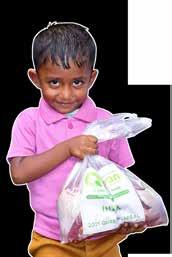

to purchase from various retailers, however it is important to note that their effectiveness is limited to the location where they are installed, and carbon monoxide levels elsewhere in your home may be higher.
“Also remember that heaters should only be installed and operated according to manufacturer’s instructions, and if you suspect a fault in a heater, have it serviced or replaced immediately.
“When selecting someone to service your heating system, make sure they are licenced to do the job. If you are in doubt, RACV Trades has licensed trades who can assist.”
ICCV is the largest Halal certification organisation in Australia servicing clients locally and internationally.

ICCV is responsible for the certification, monitoring, and supervision of Halal food for the domestic market as well as the export market.
Clients cover a range of sectors including abattoirs, food processing businesses, transportation and cold storage operators.
We are the largest halal certification body in Australia. Professional, experienced and trusted.
We work with abattoirs to get and keep their halal certification.
ICCV is specifically accredited within these Muslim majority countries.
Our certification is approved for all halal importing countries.
We monitor the certified businesses for compliance of halal requirements.
We provide a means for direct supervision in house for quality assurance.
We provide full turnkey solution for FGMs to get halal.
Malaysia, Indonesia, Singapore, The Kingdom of Saudi Arabia, Brunei, Oman, Kingdom of Bahrain,Tunisia,Yemen, Syria, Jordan, Lebanon, Kuwait, Libya, Qatar, Afghanistan, Albania, Bangladesh, Bosnia, Iran, Kosova, Morocco, Maldives.
Our certificate is approved in countries that now require halal certificate if goods have halal stamps:
We provide logistics companies for cold room and transport to get halal. Canada, South Korea, China, European Union (EU), New Zealand, Russia Federation, Sri Lanka, United Kingdom, United States of America (USA).
Although wastage is condemned in Islam, we find Muslim countries are amongst the biggest food wasters in the world.
According to the Food and Agriculture Organisation (FAO), “an estimated 1/3 of all food produced globally is lost or goes to waste”. Among the biggest food wasters in the world is the GCC, where Saudi Arabia is one of the highest. In this country alone, food waste forms up to 40-51% of the waste followed by paper, cardboard, plastics and others.
Allah said in the Quran: “Indeed the wasteful are brothers of satans, and Satan is ungrateful to his Lord.” (Quran 17:27)
Islam attempts to eradicate hunger at the grass roots level by personal involvement at micro and macro levels through institutions.
The Islamic approach to end hunger works at two levels:
- Individual Level
- Institutional Level
Islam has honoured man with human dignity and by making him vicegerent of Allah on earth.
Allah said: “Certainly We have honoured the Children of Adam, and carried them over land and sea, and provided them with all the good things, and given them an advantage over many of those We have created with a complete preference.”
(Quran 17:70)
Islam has assigned some
responsibilities to mankind on an individual level in order to fight hunger and make sure that no one goes hungry in the family or the community.
Some of those responsibilities involve:
- Earning and Spending
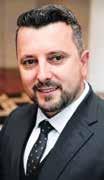
- Over consumption
- Sharing with others
The importance of Halal Earning in Islam is highlighted in different places of the Holy Quran. Allah said: “O mankind! Eat of what is lawful and pure in the earth” (Quran 2:168).
Halal earning refers to any type of income or profit that is earned through legal, ethical, and permissible means according to Islamic principles.

According to Islamic Law, other than clearly
distinguished unlawful sources of earnings, every other source of income is acceptable. The sources of income prohibited in Islam are: Stealing and robbery, Fraud, Bribery, Gambling, Usurping others’ properties, Income sources from vulgarity etc…
The Prophet (pbuh) said: “A time will come upon the people when they will not care as to how he gets his money whether legally or illegally.” (Bukhari)
There are different types of expenditures such as:
• Dire needs of life: These things are dire necessities for survival. Example: Food, drink, clothing, etc…
• Necessities of life: These things are needed for the effectiveness of life. Example: Shelter, education, basic transportation etc…
• Extravagances: Islam is strictly against wastage of anything and even more so when wastage takes place due to extravagance which are lavish and imprudent expenditures on lawful things.
• Heedless spending: These are over abundant expenditures on unlawful (haram) things.
Over consumption and wasteful or excessive spending is discouraged in Islam. Allah said: “… Eat and drink, but do not waste …” (Quran 7:7). Allah also said: “… Spend not wastefully (your wealth) in the manner of a spendthrift” (Quran 17:26).
The Prophet (pbuh) said: Food for one (person) suffices two, and food for two (persons) suffices four persons and food for
four persons suffices eight persons. (Muslim) INSTITUTIONAL
The mechanisms of Islamic social finance established by Islamic Law (e.g. waqf, zakat, sadaqtul-fitr, fidyah/ compensation money as well as sacrificial meat during Eid al Adha) had an unprecedented impact on the lives of the population: the freeing of slaves, a significant support for the most vulnerable, and the expansion of the educational and health-care system. Islam also encourages Humanitarianism which is one of the fundamental principles of the Muslim religion. Acts of humanitarianism, whether limited to a donation in money or distributing aid, are an essential element of religious practice for the Muslim.
I acknowledge these concerns too, but I don’t believe they’re grounded in reality.
But let’s take a moment to talk about housing. Housing policy is not migration policy, and vice-versa.
Yes, reducing immigration will put downward pressure on housing prices, just as any reduction in demand would. But its effects are overstated.
By Evan Mulholland MPMuch of the economic and social prosperity we enjoy today we owe to the migration policy Australia instituted in the aftermath of World War II.
A war which brought about much destruction to Europe had dire consequences here in Australia too. “Populate or Perish” was the choice Australia faced.
The then Immigration Minister Arthur Calwell himself warned that “we cannot continue to hold our island continent for ourselves and our descendants unless we greatly increase our numbers.”
And today, thanks to decades of sensible migration policy we have ‘held onto our island continent’ not only for ourselves but generations to come.
According to the Bureau of Statistics, in 2021-2022 alone half of the migrants that came to Australia were skilled migrants, although this is down from pre-COVID highs of almost 70%, our annual migrant intake is still dominated by skilled migrants.
These are migrants who put their hands up to work in the most critical of sectors, be it in healthcare, education, or aged care, all in the midst of the greatest labour shortage Australia has faced since World War II.
To put that it monetary terms, the Migration Council of Australia estimates that we need around 250,000 migrants each year. These migrants will end up contributing $1.6 trillion annually to our GDP by the year 2050.
I acknowledge that the topic of migration attracts a lot of debate and controversy.
From amongst those who call for curbing the migrant intake, we hear concerns about how our infrastructure will not be able to cope or that our already overheated housing market will be further put under strain.
and Domenico Caruso, arrived in Australia in the 1950s by boat with nothing to their name but a suitcase. They worked incredibly hard to support their family and build a home for themselves in Reservoir in Melbourne’s northern suburbs.
Doha:
If you just look at the profile of the average migrant coming into Australia, you won’t come across someone cashed up enough to purchase a home that would otherwise be bought by a young Australian.
Looking at the evidence out there, the number one factor contributing to our housing crisis is the bureaucratic red tape around supply. That is the beast we must slay, not throw the blame on the new migrants looking to call Australia home.
Research conducted by EY Sweeney in 2017 for CGU finds that 33% of all small businesses are run by migrants. As an MP for the Liberal Party, the party of small business, this is something that makes me immensely proud.

I’ve talked about the economic aspects, but I want to take touch on the humanitarian side of this debate. As something we should pride ourselves on, Australia’s migration program has always had a humanitarian component to it. Going back to the example of postWorld War II migration, many of those who arrived were Europeans refugees who had been displaced due to the fighting.
The 1970s and 1980s saw Australia open its borders to 80,000 Vietnamese refugees fleeing the twodecade long war there.
The same period saw the arrival of around 30,000 Lebanese migrants fleeing the devastating civil war there with many of them settling in Melbourne’s North, a region which I have the honour of representing within the Victorian Parliament.
Thousands of Iraqis, Assyrians, and Kurds now also call Australia home having fled civil wars, oppressive regimes, and violent terrorist groups. 18,000 Syrians refugees alone were resettled in Australia under the Abbott Liberal Government, many of whom I now get the opportunity to meet at citizenship ceremonies in my electorate and hear about their stories of gratitude for the safety and opportunity our country has provided.
My Nonna and Nonno Teresa
It goes to show the promise of Australia’s migrant success story, that you can go from one generation, arriving in Australia with nothing but a suitcase, to the next, having their grandson represent the most multicultural region in the Victorian Parliament.
Our country stands out as a beaming example of how successful and enriching multiculturalism can be. All you need to do is look at my own electorate of the Northern Metropolitan Region.
The thousands of migrant success stories, those who have come to Australia, to provide themselves and future generations with the best of chances.
The lawyers, doctors, nurses, teachers...
The tradies, small business owners...
All adding their own touch to the community and our multicultural mosaic.
Our history of migration has also always had a strong emphasis on the family. Most migrants to Australia have either migrated to Australia as a family unit or worked hard to bring over the partner, children, or parents to share in the bounty of Australia.
At the time of writing, the Albanese Labor Government released its ‘Review of the Migration System’ which while recommended longadvocated reforms to the migration system also seems to have such family reunions in its sight.
One of its recommendations is that the Government look at axing permanent options for parent reunification and work towards strengthening temporary visa options.
Labor’s Home Affairs Minister Claire O’Neil, stated in her National Press Club speech: “I’m not someone who advocates for a big Australia in this conversation”.
Against all the calls for a ‘smaller Australia,’ I am for a ‘bigger Australia.’ An Australia that provides a land of opportunity but also capitalises on the untapped potential of those seeking to make Australia home. An Australia that carries on its moral duty of providing a haven to those who have nowhere else to go.
Qatar Chamber (QC) First ViceChairman Mohamed bin Twar Al Kuwari met on Wednesday with President and National Chairman of the Australia Arab Chamber of Commerce and Industry (AACCI) Mohamed Hage OAM.
The meeting touched on strengthening cooperation between both chambers and reviewing the investment climate and opportunities for Qatar and Australia.
Speaking at the meeting, Mohamed bin Twar Al Kuwari praised the friendly relations between the two countries, noting that the volume of trade exchange between Qatar and Australia reached QR 4.2bn in 2022, showing 20% growth compared to QR 3.5 billion in 2021 and that Qatar exports fertilizers, aluminum and polymers to Australia, while the top imports from Australia include meat and aluminum oxide.
Mohamed bin Twar stressed the interest of Qatari investors to explore the investment opportunities galore in Australia, emphasizing the importance of cooperation between QC and AACCI to organize business meetings and seminars to explore the investment opportunities galore and the establishment of mutual projects.
For his part, Mohamed Hage said that the two countries enjoy distinctive relations, pointing out that his visit aimed at reviewing prospects for cooperation between the Australia Arab Chamber of Commerce and Industry and Qatar Chamber and enhancing the communication between businessmen in both countries.
Mr Hage also said that there is room for further cooperation between the private sector on both sides in various fields, including agricultural technology, mining, food security and tourism.
He said that 10,000 Australian visited Qatar during the 2022 World Cup. (QNA)
Source: The Peninsula Qatar
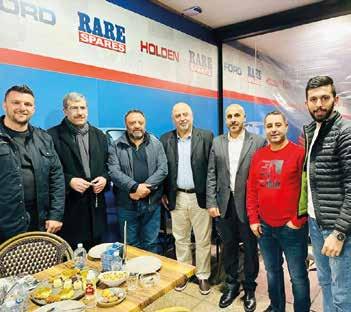
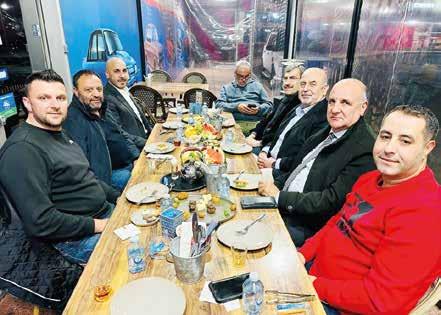
The Australian Government will launch a new information program, encouraging Australians to get ready for the conversation about the referendum to recognise Aboriginal and Torres Strait Islander people through establishing a Voice in the Constitution.
The information program will provide Australians with factual information about the referendum proposal to recognise the First Peoples of Australia by establishing an Aboriginal and Torres Strait Islander Voice and point them to Voice.gov.au where they can learn more.
Giving Australians trusted, easily accessible information that covers the what, why and how of the Referendum is crucial in increasing awareness and understanding before voting day, being held between October and December this year.
The information campaign will
cover a variety of mainstream and targeted channels, including television and radio commercials and will be translated into a number of languages.
Community toolkits and other resources will be made available on the Voice.gov.au website.
This neutral civics information is one part of the Government’s broader civics education program to help all Australians answer questions they may have around the proposed change to the Constitution to recognise the First Peoples of Australia.
In parallel, the Museum of Australian Democracy and Constitution Education Fund Australia are set to deliver a grassroots civics program focusing on general information about the Constitution and referendum processes in the coming months.
These are all important steps in continuing the national
conversation and encouraging everyone to participate in informed and respectful discussions as the referendum nears, ensuring all Australians can cast an informed vote.
For more information and to view the new resources, visit Voice.gov.au
“All Australians need to be wellinformed with access to a trusted source of information as they consider the proposal to change the Constitution to recognise the First Peoples of Australia through a referendum.
“I welcome the launch of this information campaign which will reach audiences of every background and is as a key step in preparing the country for this national conversation before voting day. Minister for Indigenous Australians Linda Burney said.
“This is one part of the broader Referendum civics education program with investments made through the Museum of Australian Democracy and the Constitution Education Fund Australia to give Australians everything they need to make an informed decision.”
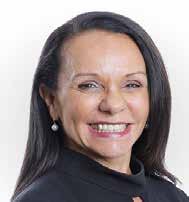
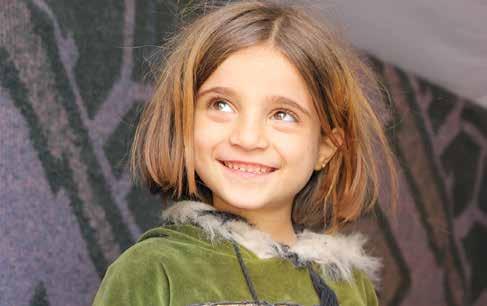
This post is about marriage but if you’re single, please do read till the end, because the points in this article apply in other relationships, too. Raise your hand if you ever caught yourself having negative thoughts about your spouse. You’re not alone. Failed errands, missed promises - these are some examples that can cause friction between spouses. If you find yourself overwhelmed in a negativity cycle, you can choose to be kind by taking the following 3-step strategy:
1) Catch yourself red-handed. Be aware of the negative thoughts that race through your mind.
2) Challenge negative thoughts. Often, a negative thought may be sparked by a single action or event. Ask yourself: Is there any justification in thinking negatively of my spouse? Could there be another explanation of the failed errand or missed promise?
3) Replace negative thoughts with good thoughts. The human mind likes to have explanations
and tends to jump into conclusions. If necessary, talk it out with your spouse to clear the air if you have doubts about his or her words or actions.
You have everything to gain and nothing to lose from the habit of thinking well of your spouse. What you stand to gain include peace of mind, a more energetic you and tranquility. The opposite is also true. When negativity takes hold of your relationship, anxiety and stress can only hurt you.
Can your marriage improve if you’re the only who changes? Yes, it can, because your spouse cannot fight alone. It will be difficult for your spouse to start and sustain an argument without you playing an active role in it. However, being the only one who changes also requires more patience, perseverance and time on your part. But it’s worth it. It means you are presenting yourself with words and actions that your spouse isn’t used to. It’s not a magic pill to catapult your marriage into
heaven overnight. But over time, your spouse will take notice of the change in you and respond in a way that is likely to bring your marriage to a happier level. Don’t worry if nothing seems to happen in the beginning. The Law of Cumulative Effects says that little things make a difference in the long run.
Focus on one issue at a time. As the saying goes, “A problem well-stated is a problem half-solved.” You may be going in circles when you don’t agree on what the real issue is. Is it something to do with housework, money, in-laws or all of these fused together? Arguments arise because both of you don’t see the same thing the same way. Guess what: It’s OK! Have you heard of the term “creative tension”? It means that when two or more people disagree, they are forced to look for solutions and ideas which they might not have thought of before.
If and when you need to raise a matter of concern, there may be moments when you’re truly angry and you feel like venting it all out.
Don’t. Choose to be tactful. There’s a difference between being assertive (you’re more likely to be heard) and being rude (you’re more likely to be incomprehensible and ignored). Choose to be kind. It isn’t smart to lash out at your spouse, throwing things around or slamming the door in your spouse’s face, pushing him or her into a corner. Most likely you will provoke a defensive reaction. Putting your spouse down might seem to work for a while but in the long run, focus is shifted to how emotional you have been, not the problem itself. Negativity, harshness and sarcasm tend to plant the seed of resentment. You’re not being dishonest when you choose to restrain yourself. You’re just handling it smarter.
ناريجلا ةيلع فطعي
دلاولأا هجحو ءاقدصلأا نم ىقبت
ةرايز مدع يف مويلا )ةيهاولا (
رارمتساب هب لاصتلاا وأ مهدلاو

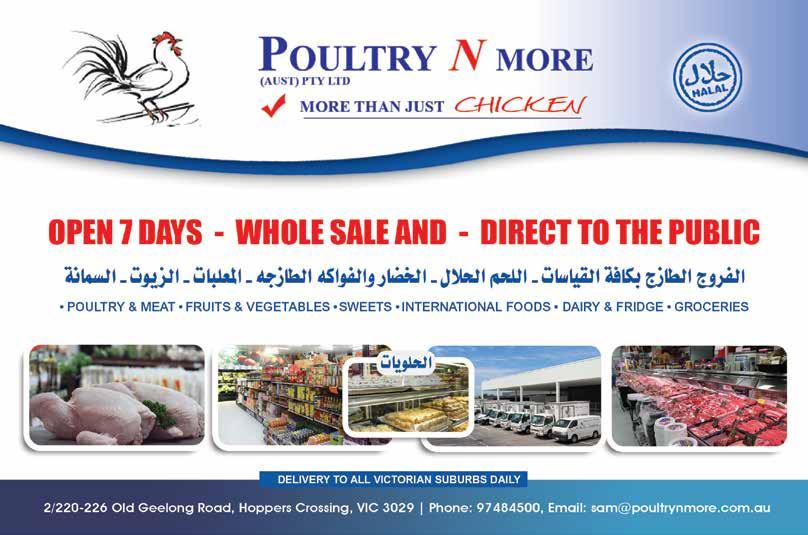
مئادلا لاغشنلااو لمعلا عفاد وه
ةشيعملا ءلاــغو قزرــلا بسك يف
لكو لاملا عيمجتل مهتردقم مدعو
لاو ةايحلا تاطوغض نم كانه ام
If you’ve ever been stung by a hungry bee, you’ll know that ‘sting’ feeling. This is the reality and experience that many Muslim Australian families are feeling right now, a sting in their pocket. We’re almost halfway through the Gregorian calendar year and the cost of simply trying to live hasn’t got any easier. How many times have you heard your parents say;
“Money doesn’t grow on trees”!!!
Whether its hungry children raiding the cupboards after school, screaming “MUM I’M HUNGRY”!
Whether it’s that dreaded extralarge electricity bill that is now weeks overdue, or an array of payment plans and debts piling up on the dining table that hasn’t been looked at for the past few weeks. It’s fair to say, ‘We’re feeling the pinch’.
This is simply the reality for many Muslim Australians, they’re simply doing it tough. On the 9th of May 2023, the Australian federal budget was released. The anticipated hope for some long-awaited relief to alleviate the pressure on the debit card had arrived.
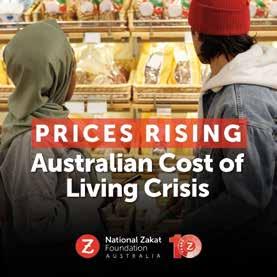
So, you might be wondering what the National Zakat Foundation has been doing to support our brothers and sisters. Over the last 10 years, the National Zakat Foundation has been serving the local Muslim community at the micro and mezzo level. More often than not, unfortunately, the people in our community who are doing it tough are typically not recognised. We’ve witnessed verbally and visually firsthand the increasing need of people seeking assistance with meeting their daily living expenses throughout the year. This is because of the insisting
rising costs of electricity and gas, petrol, rental increases, meat, fruit, and vegetables (alhamdulillah the price of lettuce has gone down). For some people, they simply ‘can’t catch a break’.
This exemplifies and reaffirms the notion that the need for local Zakat is paramount. The National Zakat Foundation is a driving force behind empowering the local Muslim community to become selfsufficient. One way in which this has been achieved is by carrying out assessments diligently to determine the eligibility of potential recipients receiving Zakat. This is implemented to ensure that the zakat is being carefully distributed to those who are eligible. Subsequently, this not only enables but also empowers individuals to get ‘back on their feet’. This in itself reflects the value, blessing and fundamental
essence of Zakat, to reduce poverty, promote equal economic opportunity, uplift social justice and empower individuals to be self-sufficient. With the permission of Allah (SWT), the National Zakat Foundation will continue to endeavour to alleviate the financial sting upon those who are doing it tough and to enable those to ‘catch a break’.
In next month’s edition, we’ll explore briefly what the impact looks like when someone is enduring finical hardships. This will inshaAllah provide greater clarity and address the circumstances that aren’t always visible.
By Br Shakir Hurn (NZF Zakat Officer)The decision by the Pharmaceutical Benefits Advisory Committee (PBAC) to backflip on its restriction on the availability of an asthma medication highlights that its decisions are not set in stone.
Welcoming the reversal, National President of the Pharmacy Guild of Australia Trent Twomey said it was a pragmatic and common sense win for patients.
“Quite clearly the original decision to restrict availability of this important medicine was wrong,” Professor Twomey said.
“There was no logic to it, and the PBAC has now seen sense.
“This whole issue highlights that PBAC decisions can be reviewed and reversed when there is clear and demonstrable evidence that they are wrong.
“The PBAC decisions are not sacrosanct. They are - as they should be - open to robust and evidence-based examination.”
The PBAC asthma medicine reversal comes just a month after it announced, without any warning, the introduction of limitations which required specialists to prescribe fluticasone propionate 50mcg for children under the age of six.


Under the PBAC decision last
month, the medicines for children aged six years and under had to be initially prescribed by a respiratory specialist, and then could only be prescribed with authority approval by Medicare.
In addition, patients over the age of six could no longer access the medicine as a pharmaceutical benefit, forcing them to buy privately which imposed a significant cost burden, primarily for those with concessional status. Also, there were no equivalent alternatives available for patients over the age of six.
ةموظنم هتوح ام
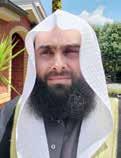
رــكذ يتلاو ،]رشعلا تاءارــقــلا .مهتاورو ةرشعلا ءارقلا نيب تافلاخلا
ددع ةرثكل :ىربكلاب
ذخؤت يتلا يه قرطلا هذــهو .اننامز يف ةرتاوتملا تاءارقلا
]ئراــق = مصاع[ :يحيضوت لاثم
]مصاع اــيوار = صفحو ةبعش[و...
صفح قيرط = حابصلا نب ديبع[و... .]ةيبطاشلا نم
نم مصاع نع صفح ةياور :لاقيف
قيرط نم وأ( حابصلا نب ديبع قيرط .)ةيبطاشلا
دحأ ىلع قلطي :هجولا فيرعت
يه يتلاو ،ءارقلا نيب فلاخلا هجوأ
ىتأ هجو يأبف ،رييختلا ليبس ىلع
نوكي لاو ،ةياورلا كلت يف أزجأ ئراقلا .اهنم ئشب لالاخإ
ةديصقلا يه :ةيبطاشلا فيرعت
هــجوو يناملأا زرــح[ ـب ةموسوملا
،ليوطلا رحبلا
،]يناهتلا
Somalia, Ethiopia, Kenya, India, Sri Lanka & Nepal.
Bangladesh, Burmese Refugees, Afghanistan, Pakistan, Azad Kashmir, Indonesia, Sudan, Eritrean Refugees, Togo, Zambia, Cambodia & Philippines
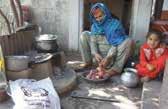
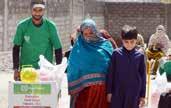

Lebanon, Syria, Syrian Refugees (Jordan, Lebanon), Yemen, Jordan, Iraq, Bosnia, Albania, Kyrgyzstan, Egypt, Tunisia, Fiji & Solomon Islands.
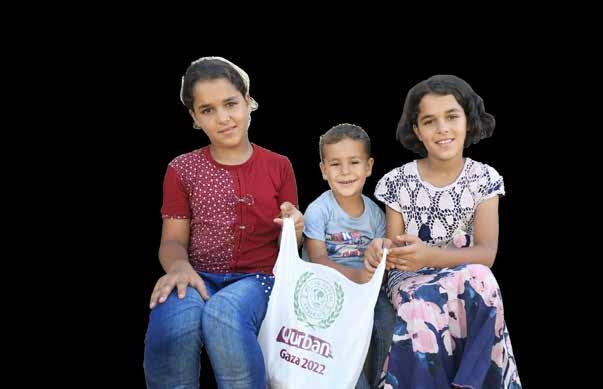
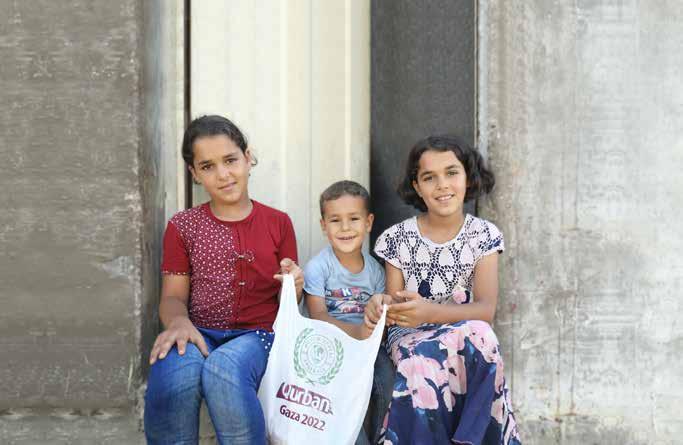
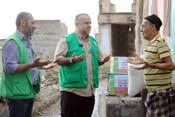
Lebanon & Gaza (Palestine).
